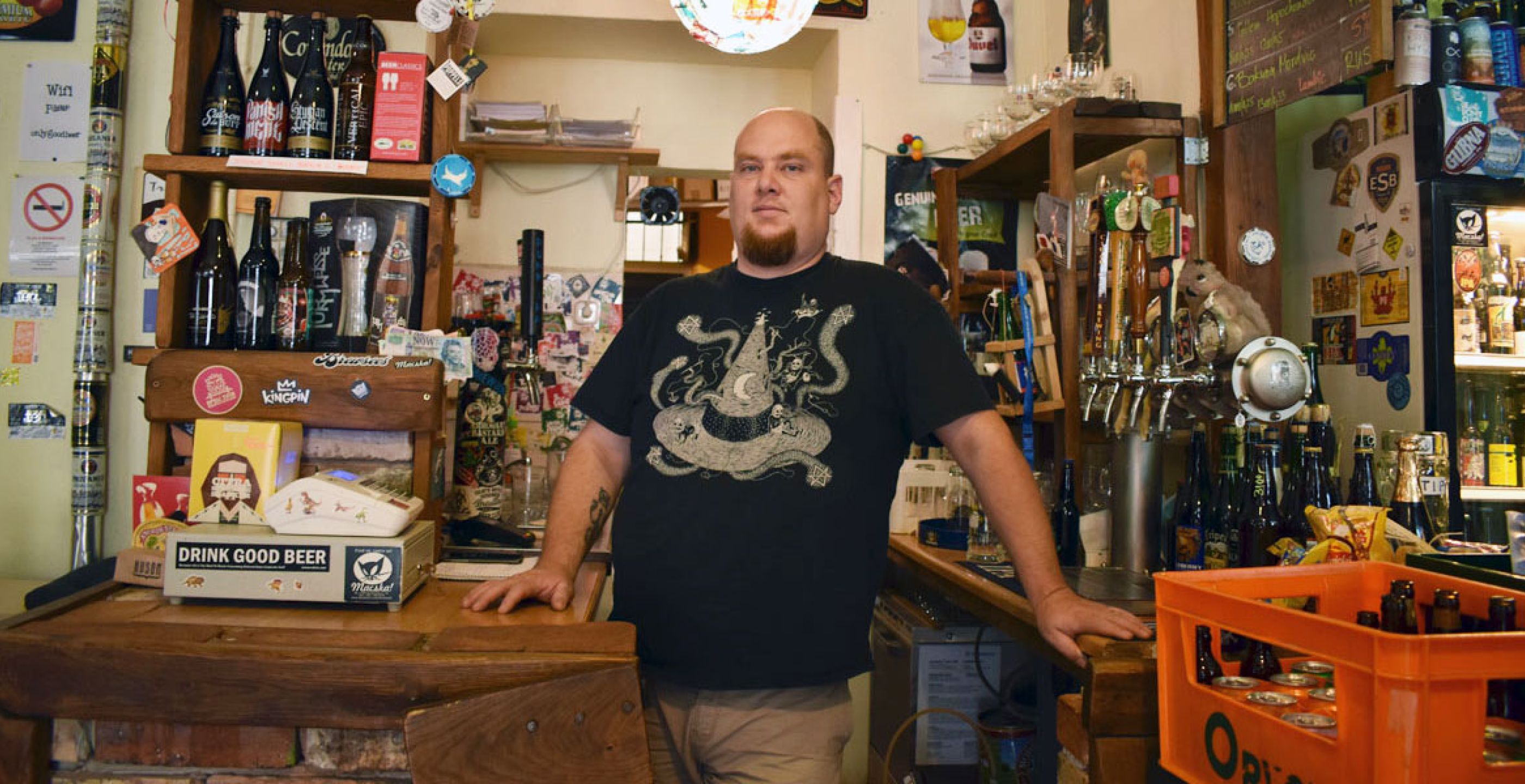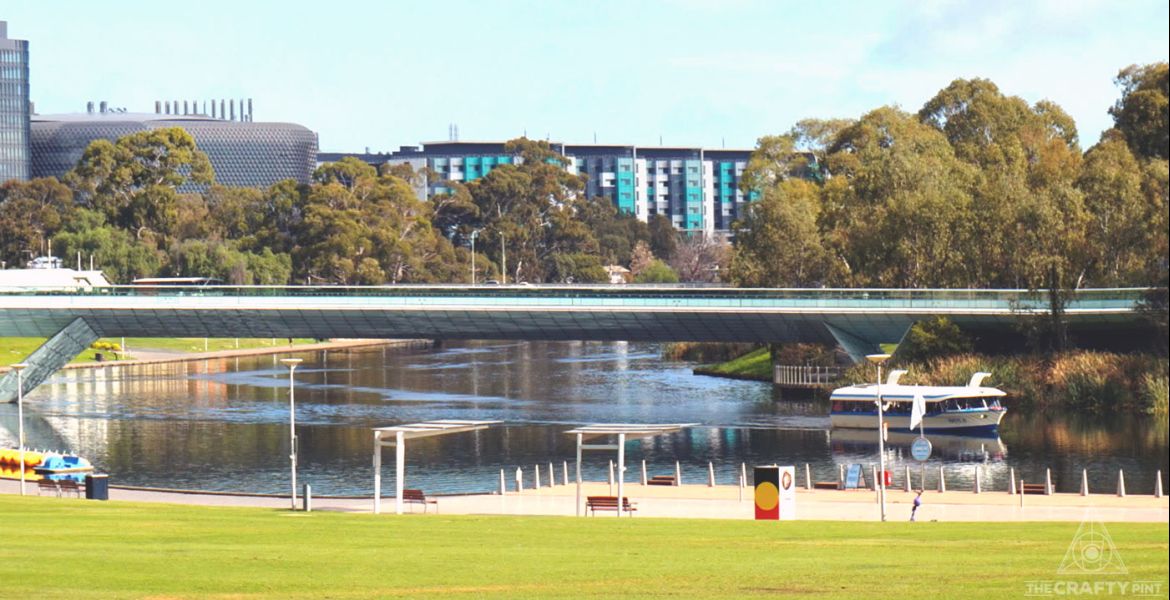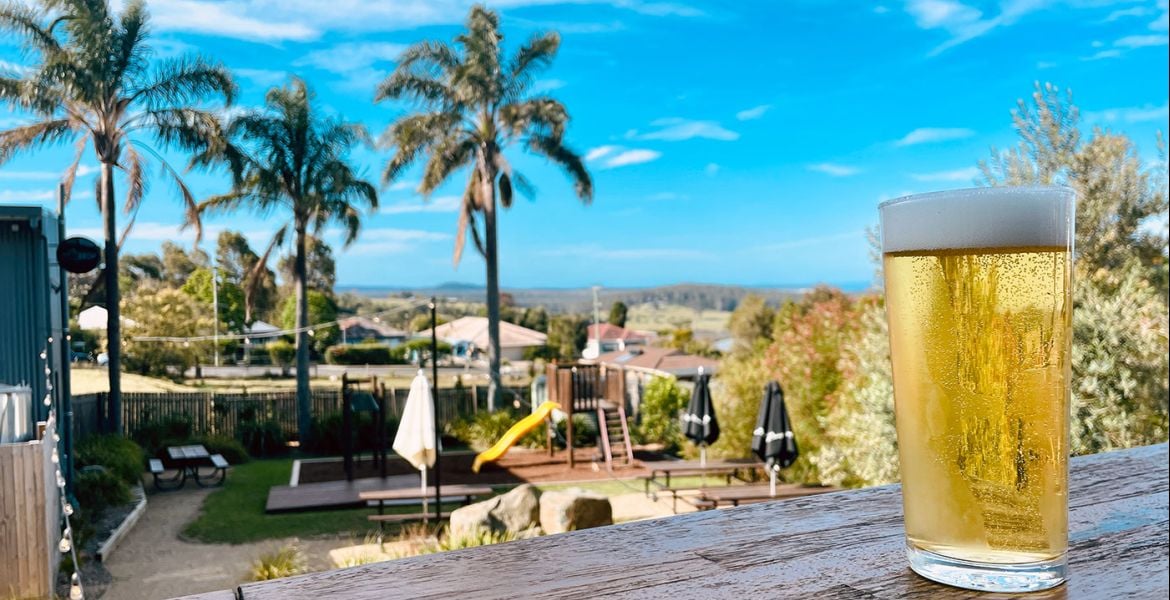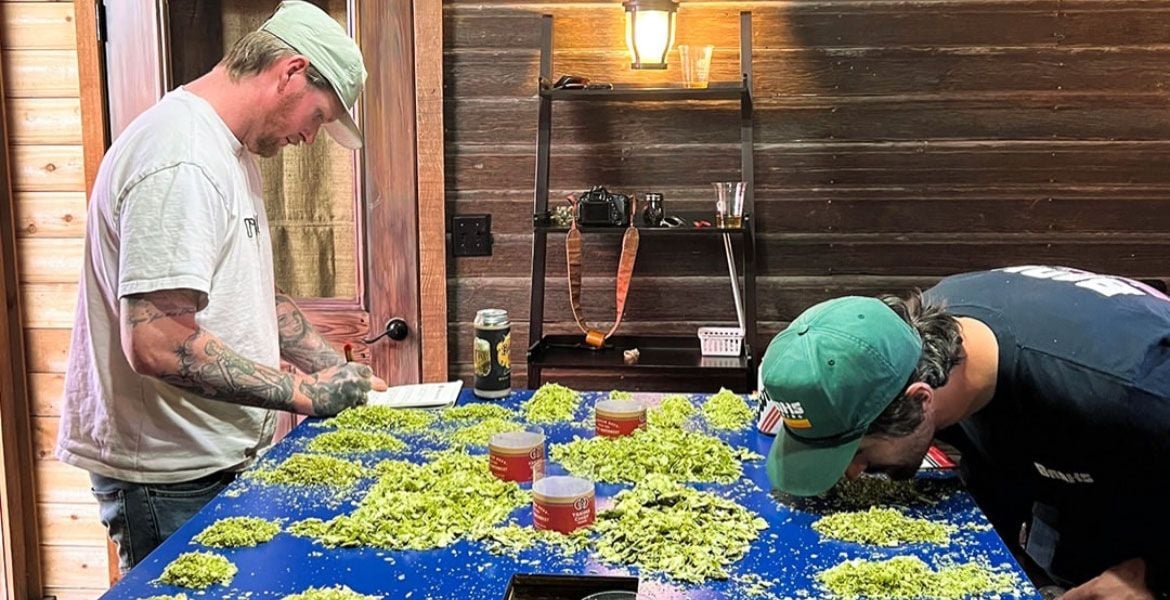Let’s start with a little lesson in linguistics: the Hungarian word for "beer" is sör, pronounced "shewr" (or something close to that); it's a funny little word that has travelled.
That’s Hungarian for you – it’s a fascinatingly diabolical language, the word-hoard of equestrian nomads who travelled from northeast to inhabit part of eastern Europe a millennium ago: sör is a word that first slipped off the tongue somewhere near the Aral Sea. It’s the first hint things might be different here.
My initial stop in Budapest, then, is a beer store called Csak a jó sör. This means "Only Good Beer", and the burly man behind the bar is perhaps the main reason why Budapest has a variety of this kind of beer. Ten years ago, Gergely Kővári started importing a number of well known craft beers into Hungary and it has slowly snowballed into an innovative and intriguing Budapest beer culture.
It doesn’t take very long for my conversation with Gergely (pictured above) to move into history and politics. We are discussing the influence of the Austro-Hungarian Empire on contemporary craft beer culture, for example, or we are chatting about the consumption of booze under Communism. It may seem esoteric, but there is no doubt these old regimes leave their subtle influences on how craft breweries can operate.
For example, Hungary already had a profusion of microbreweries in the 1990s: after Communism, in a scenario in which there wasn’t enough beer, hundreds of small breweries were established. Sure, they were all selling lagers (and a lot of them weren’t particularly good or stable beers), but there’s at least a pattern to follow.
The entry of multinational beverage companies into Hungary changed this, of course, but even today you’ll find a heap of small breweries or brewpubs. Again, it’s not surprising that most of them are ordinary but, in 2011, Gergely brought a bunch of them together for a festival of Hungarian microbreweries called Főzdefeszt.
“That was the spark,” he tells me, with local brewers beginning to open their eyes to the opportunities to be found in brewing new styles of beers – and doing them well.
Gergely suggests I hit the suburbs, where a cluster of brewers are operating out of the 19th century factory of one of Budapest’s earliest breweries (Dreher is now, of course, owned by a multinational).
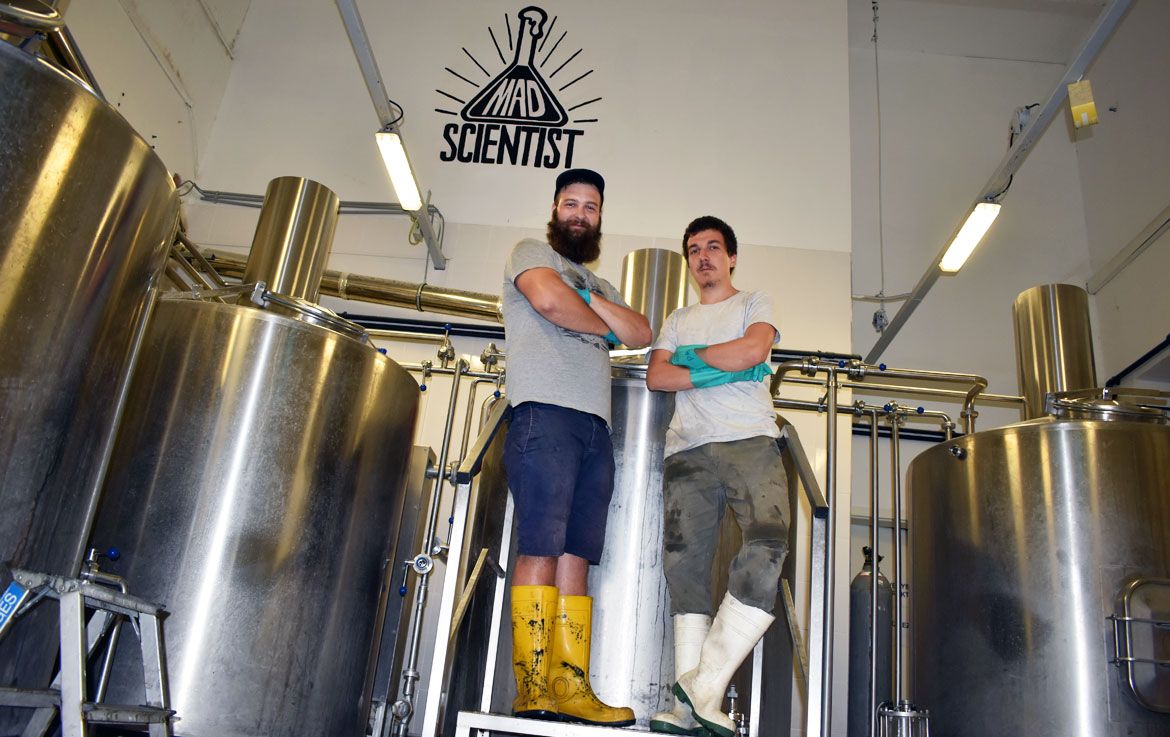
I reach Főzdepark a little worse for wear and a little late – I had botched the public transport journey out of the city centre – but all my frustration is swiftly set aside when I am greeted by Martón Sefcsik at Mad Scientist. He’s a slick, friendly, well-spoken connoisseur who also fronts a metal band. We promptly go for lunch at a small alfresco eatery, armed with four bottles of Mad Scientist, the beers carefully selected to go with the simple workers’ stew we have on the street.
Mad Scientist is one of the most energetic breweries I’ve met in Europe, releasing a different beer each week. These are ambitious small batches, and those that I tasted were genuinely good. Their best known beer is a mango beer, which was remarkably tasty.
As Martón says: “We wanted to bring out the woody flavour that mango actually has, not just the sweetness.”
While experimentation sometimes lends itself to the extreme, these guys are producing high quality, clean, full-flavoured brews. Founded by a trio of beer lovers in 2016, they now have set up their bar, Labor, in both Budapest and Berlin.
Next door is Monyo, the brewery that first established itself at Főzdepark three years ago. It’s Friday arvo and, after a quick tour, I’m invited to join the brewing team for a meal of pörkölt, which brewmaster Antal Nemeth has had stewing in a cauldron outside all afternoon.
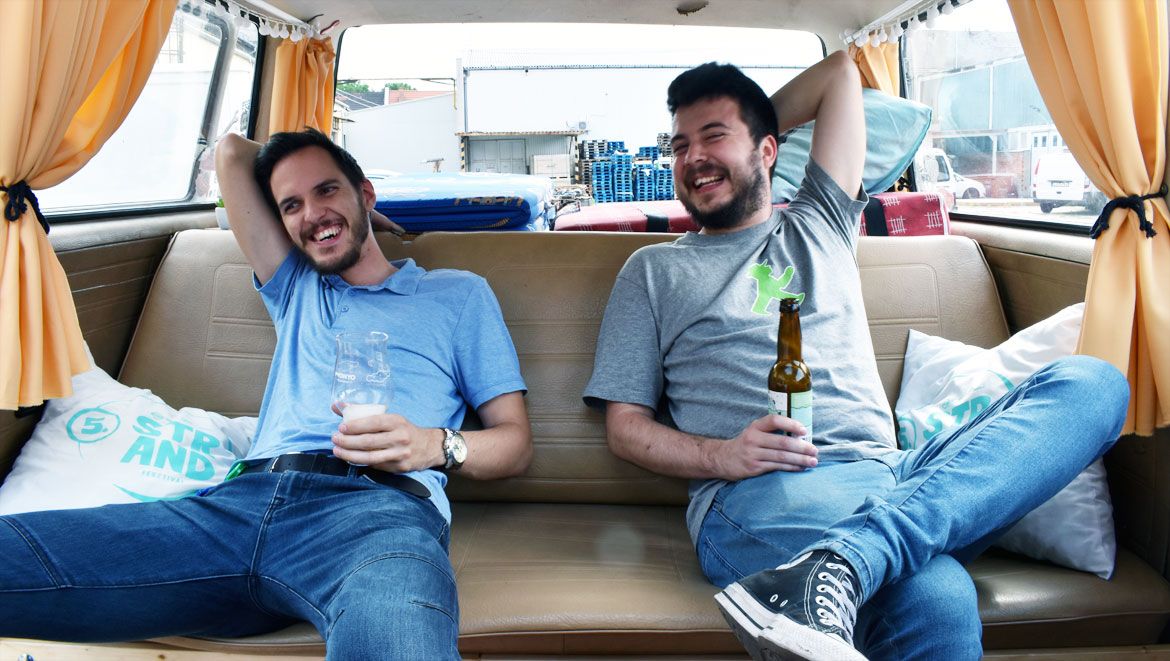
They’ve got eleven employees, which seems quite a lot for a small brewery: perhaps it’s one of the small advantages of Hungary’s low wages. But there are obvious disadvantages too. While the purchase price of independent beer isn’t too steep, it can be very cheap to drink macro lagers. There are plenty of people with low incomes and little incentive to buy craft beer, and the brewers know it.
Hungarian brewers are just beginning to export to other European countries now. Having taken this step, it isn’t unlikely that Hungarian beer will begin to travel more widely. But, even in Budapest, it appears there’s potential for more good beer to be made and drunk.
“Consumption hasn’t reached its maximum point,” Martón says definitively. “Beer in Budapest hasn’t matured entirely yet.”
Most local drinkers held about a dozen or so craft breweries in high esteem – not such a high figure for a city of nearly two million, with several million more tourists passing through each year. But it’s swiftly growing.
“We have no traditional beer market,” Gergely tells me, but goes on to pointing out the positive side of this: it gives the brewers a chance to guide ideas about beer a little more easily. As with other parts of the world, some are putting souring and barrel ageing at the forefront of their operations. In a place where fruit grows readily and wine barrels can be acquired from within the region, there’s a real chance to create what one brewer here calls "Hungarian terroir".
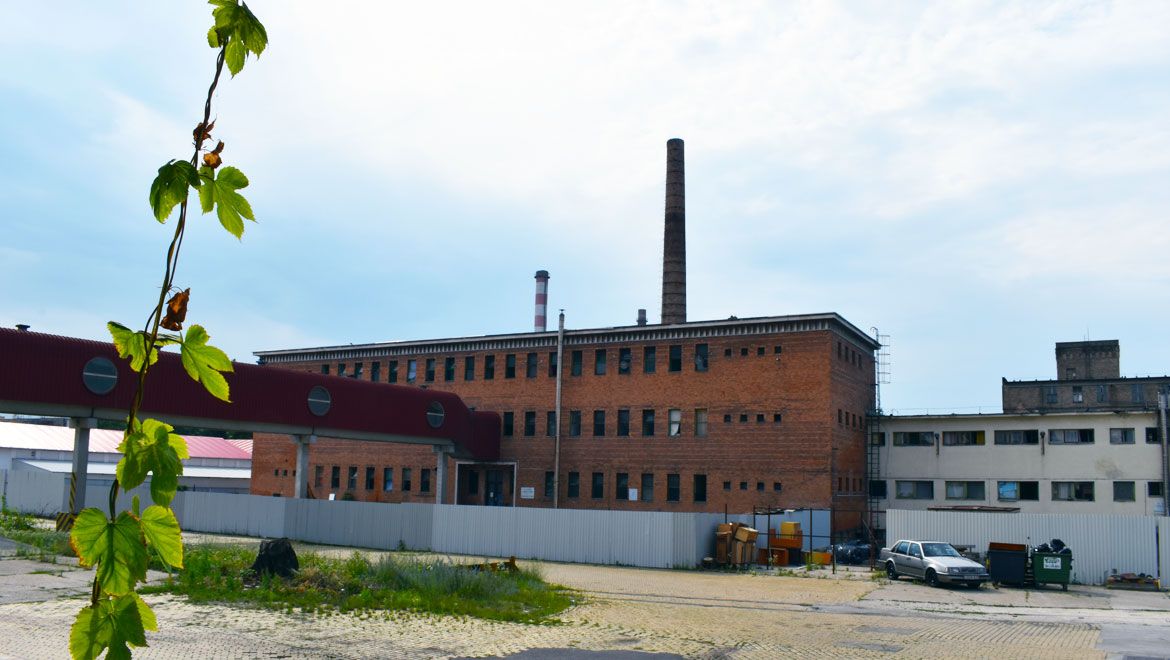
One of the country’s weaknesses, in general, is its bias towards Budapest to the detriment of every other part of this rather large nation. It’s another throwback from the heydays of empire.
The outcome for craft beer is that parts of the country have none. There are a few high quality breweries burgeoning in municipalities – examples of these include Szent András Sörfözde in the flat plains of the country’s far east, Bors on the Danube River in the northwest, and Hopfanatic in the south – but they are few and far between in a large country.
Yet there are also interesting opportunities with international collaborations. I’m interested to hear the importers and festival coordinators talk about their dealings with breweries from countries like Russia and Romania. Exporting Hungarian beer is a logical extension of their business, but it will be intriguing to see how much they can turn their attention to the east, where craft beer markets are starting to grow as well.
It’s a dynamic mix and it seems to me that Budapest could easily become a hub for European beer. For example, Martón has also been involved in organising BPBW, Budapest’s big beer bash held each May. A large number of breweries are from outside of Hungary, and so too are half of its punters.
And, while some of the visitors were big names (Jester King, Wild Beer, To Øl), others are brewers from the region like Bevog from Austria, Bakunin from Russia, Garden Brewery from Croatia and Browar Golem from Poland. More to the point, the beer continues to improve, and there’s certainly commitment to this practice.
Conversation and competition both spur the beer forwards, and every person involved in the creation of craft beer has a noticeable sense of ownership over the whole process.
Late on my last Saturday night in Budapest, I found myself in one of the best of the craft beer bars in the city and, lo and behold, there were a bunch of the people I’d met for this article. One of them was an assistant brewer from Főzdepark, a tough-looking bloke in a homemade t-shirt. He gestured towards the delicious ales in our glasses and said in a fairly strained English: “This is my life.”
We raise a glass to that and say: "Egészségedre".
Or at least my new mate says that; I mumble.
Where to begin your search for craft beer in Budapest
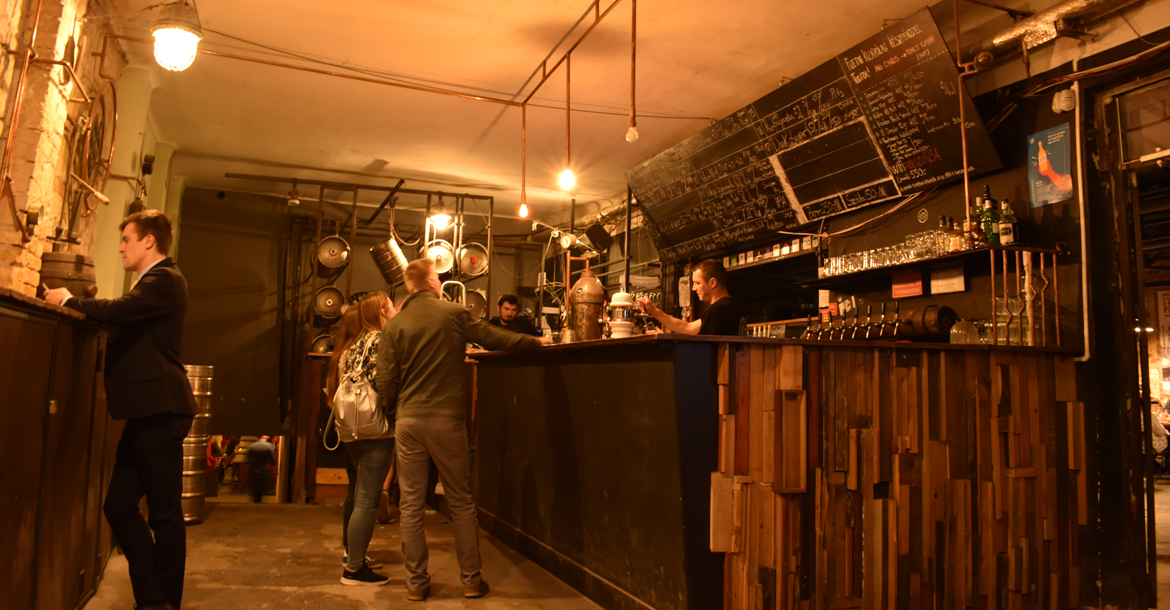
- Csak a jó sör! – Kertész u. 42: Gergely’s terrific beer shop, also with six taps. It’s only open from 2pm to 9pm, every day except Sunday.
- Hopaholic – Akáfca u. 38: Around the corner, this bar is the sister to the aforementioned beer store. It has a few more taps, and stays up a little later.
- Beer Selection – Jószef krt. 22-24: Well worth a visit, as you step in off a main drag and find yourself surrounded with bottles of craft beer. You can take it away, or else you can crack it open and drink in store. Plenty of Hungarian options, knowledgeable staff, and a chilled out vibe. Afternoons/early evenings only.
- Élesztő – Tűzoltó u. 22: Budapest is famous for its "ruin pubs", and this one (pictured above) comes with a great vibe and serves fantastic Hungarian craft beers. It’s tucked away in an unexpected little neighbourhood, but not too far from the Metro station Corvin-negyed. (Élesztő means "yeast"; thank me later for the Hungarian lessons.)
- Labor – Kazinczy u. 14: In the pedestrian-friendly Jewish Quarter, the boffins from Mad Scientist have set up their lab-themed bar (you can also find one in Berlin).
- Monyo Tap House – Kálvin tér 7: The brewers at Monyo have also set up their own bar; this is often a busy, friendly, social space. They have ten taps of their own, although occasionally you’ll find guest beers on tap. Easily accessible via the Kálvin tér Metro station.
Find other travel articles here.




